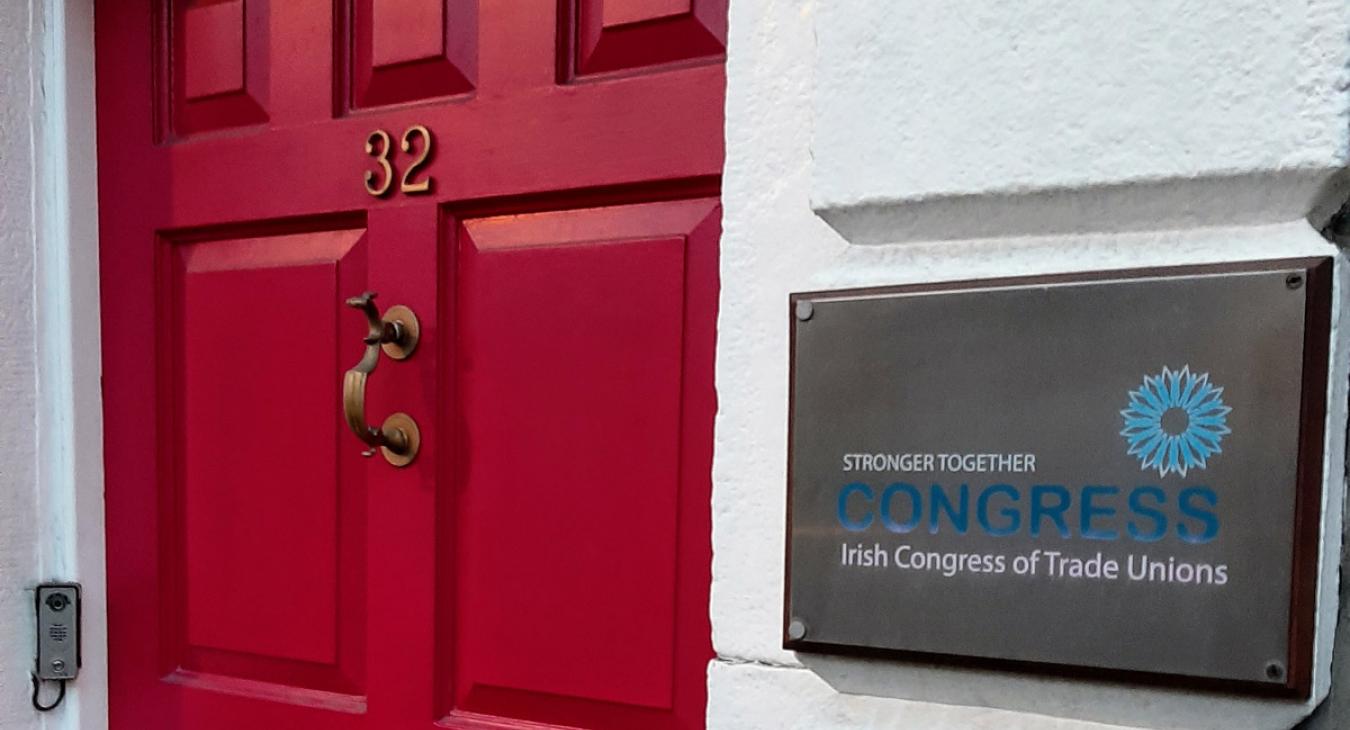Congress General Secretary David Begg has told a memorial service in Dublin that "Mandela's mission lives on" in respect of the struggle for economic and social justice the world over.
Mr Begg praised the role played by the Dunnes" strikers in the struggle against apartheid, saying they were "good, decent young people who saw wrong and tried to right it."
Speaking at the service in St Patrick's Cathedral, Dublin, in honour of the late South African president Mr Begg spoke of the key role played by trade unions in the battle against apartheid, within South Africa and worldwide.
The Irish Congress of Trade Unions maintained a standing liaison committee with the Irish Anti-Apartheid Movement (IAAM) during the years of apartheid and Mr Begg was a sponsor of the IAAM.
"Few people in history have inspired generations as Mandela has by the very quality of his life," Mr Begg said.
"For the last few years of his captivity he was a world figure. It's easy to forget that for most of the time he was unknown outside of South Africa.
"When, after 27 years in seclusion, he was eventually set free he did not step through the looking glass to emerge in wonderland. He emerged into a world of poverty, unemployment and violence.
'the establishment of a non-racial government and society in these circumstances would have been a formidable challenge to any political leader. For somebody advanced in years who had endured a lifetime of hardship it seemed impossible. But Nelson Mandela, by virtue of his standing, his high principles and integrity did achieve an extraordinary transformation."
Unions in Ireland and abroad had played a key role, he said.
'the triple alliance of ANC, the Communist Party, and the Congress of South African Trade Unions (COSATU) in the struggle against Apartheid guaranteed the support of the trade union movement worldwide. Ireland was no exception.
Week after week thousands of trade union members participated in campaigns and rallies organised by Kader Asmal and his associates in the Irish Anti-Apartheid movement. Not that one had a lot of choice – Kader wouldn't take no for an answer.
'trade union support for the struggle had its apotheosis in the Dunnes Stores strike in 1984 when a number of young women were suspended for refusing to handle South African fruit on the instruction of their union, Mandate. These were not radicals. They were good, decent young people who saw wrong and tried to right it,"
Mr Begg recalled that ending economic and social inequality had always been a driving force in Mr Mandela's lifelong struggle.
"In an address to the court at the end of his trial in 1964 Nelson Mandela said:
"Africans want to be paid a living wage.........Africans want a just share in the whole of South Africa; they want security and a stake in society."
"It is a sobering thought that 50 years later many millions of Africans have to try to survive on less than $1 a day in a world where the income of the richest 100 people is enough to end poverty.
"Mandela's mission lives on."

